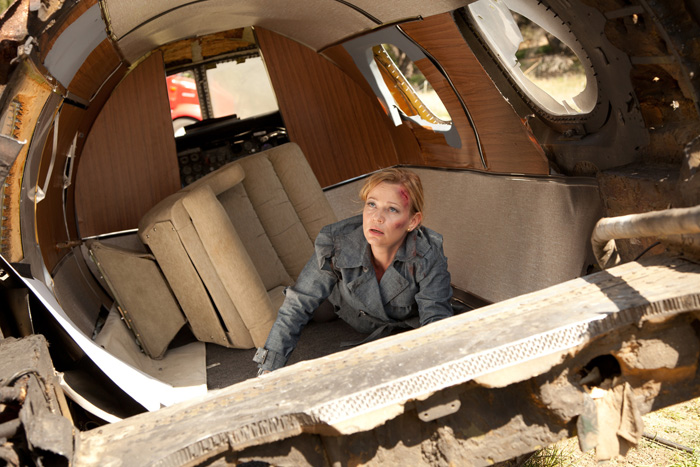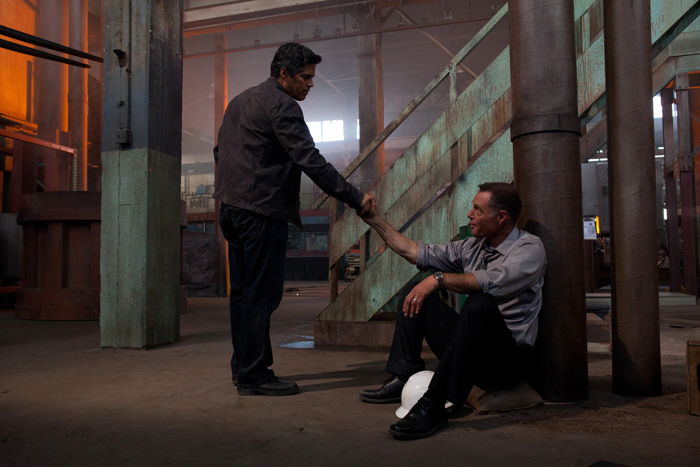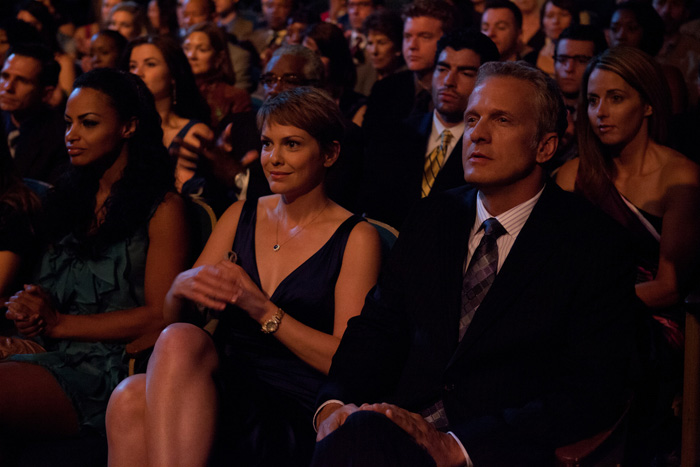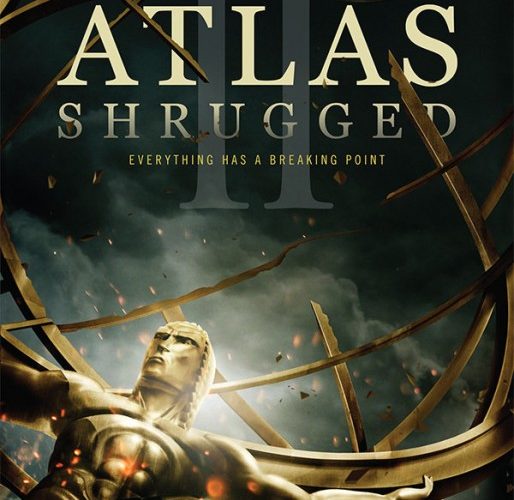Ayn Rand‘s Atlas Shrugged is one of the most divisive novels ever written with equal numbers hailing her Objectivist manifesto as Bible or deriding it as blasphemy. It’s a timely tale these days too as gas costs rise high and cries of Socialism are heard regarding our Presidential regime currently at risk of upset by a team who’s VP candidate is a very vocal Rand apologist. Our nation is at a crossroads not unlike the book’s where citizens are being asked to take a stand. Will you back a world full of luminaries rewarded for their hard work and effort propelling mankind into the future or one stolen through power plays, backhanded deals, and political pull lining the pockets of greedy men too lazy to do more than lift a pen to change the course of history?

With Hollywood largely populated by Liberals, it’s no wonder the source material was thought unfilmable. In fact, the only reason we have the chance to see Rand’s ideas on the big screen is because producer John Aglialoro decided to self-fund it after two decades of studio rejection. CEO of Cybex International, this man is in control of a company much like the Taggarts—a position to become a grinning fool riding the work ethic of those under him like James or a powerful figure of strength and pride like Dagny. Refusing to take “No” for an answer, he saw Atlas Shrugged: Part I open in three hundred cities across America to fan praise and critical panning. Its low budget visible on its sleeve, many saw the blood, sweat, and tears as a cut-rate TV production pretending to be more.
Taking that response to heart, his drive to finish the trilogy was reinvigorated. I personally enjoyed the first installment a lot, but not because it looked great or had Oscar-worthy performances. No, it was pretty much a television melodrama hindered by lack of funds and a director unfortunately too inexperienced to handle such a daunting task. There’s no objective way to deny this fact. What Aglialoro and screenwriter Brian Patrick O’Toole did accomplish was a rather impressive distillation of the key story points necessary to build this not so distant future on train tracks. They gave life to beloved characters and the unseemly actions of politicians twisting the law to pilfer profits from those smarter, turning them into slaves incapable of stopping due to pride in the products they created and misguided optimism that things would change.
If Part I is about getting our feet wet to understand the not so far-fetched dynamics at play, Atlas Shrugged: Part II is about deciding whether to hold onto false hope or stop to watch it all burn. No one is saying Rand’s tale is without convenience or implausibility, but such broadly heightened adversarial positions are needed to make her point. If government takes away man’s ability to succeed on behalf of his mind then man should be able to destroy his work for those left behind to create their own in his absence. Once ideas take hold that genius exists for the betterment and profit of the collective, one shouldn’t be surprised when the exploited finally decide to cease taking the abuse. The lazy cannot bleed the hardworking dry and expect to punish them for it too.

And this is what the tacked-on subtitle “The Strike” connotes. As all the visionaries and folk possessing hearty work ethics disappear, only Dagny (Samantha Mathis), Henry Rearden (Jason Beghe) and the moochers are left. Doing their damnedest to keep the gears of society going despite threats of jail and the complete dissolution of intellectual property, the clout of men like James (Patrick Fabian) and Wesley Mouch (Paul McCrane) becomes too strong a force to combat for our heroic pair. So, while two hours of exasperated sighs and angry questions of “Who is John Galt?” are necessary to understand the plight of the genius in an ungrateful world, it can get a bit tiresome. Spent mostly in corporate offices, courtrooms, and image-building soirees serving as forums for philosophizing speech, there sadly isn’t much suspense involved without its bookends’ assistance.
This monotony of great men vanishing to the incredulous responses of those left behind becomes a result of breaking the novel into three sections. Rather than appreciate the plot’s message, we delve deeper into the characters this entry. Mathis is a tad one-note, but you do get her mix of stalwart stubbornness and utter helplessness. Beghe instills a compassionate soul with unwavering morals to let him become the voice of the people. And where Francisco D’Anconia is concerned, Jsu Garcia being the best bit of Part I shows why Esai Morales‘ incarnation appears to mirror his performance minus the duplicity as his motivations begin to be revealed. It’s therefore left to Fabian’s James Taggart to toe the line of company man against autonomous soul, his brief moments of remorseful disbelief only outshined by his quick repression of them.

And while the older actors this go-round skews closer to the my thoughts when reading the novel years ago, the fact an entire new cast had to be brought on just one year later is a disappointment. Hopefully this crew will be available to provide consistency to the final piece, the use of the exact same opening caption text as the first make it seem the filmmakers wanted a ‘fresh start’. The production value and special effects are improved and director John Putch gives a slight boost in craftsmanship over Paul Johansson, yet the end result still seems out-of-place graduating from my local arthouse to the Regal multiplexes. But stated above, we should feel lucky to have anything at all. Aglialoro and company should be applauded for adequately transferring Rand’s words to the screen when no one else would.
Atlas Shrugged, after all, is an acquired taste appealing to those already possessing an inclination towards its author’s politics. Its message bolsters devotees; it doesn’t convert staunch detractors. So while many dismiss it as a botched attempt or rail against what it says instead of how it says it, I do believe its goals are met. We should wait to grade the trilogy as a whole since each part lacks impact without its siblings—a truth for which this middle portion is the biggest victim. But through its slow build towards Dagny’s unorthodox arrival into The Valley, we do get Quentin Daniels (Diedrich Baker) quest to jumpstart Part I‘s fusion engine and the fast-paced unraveling of free society to excite us. If nothing else, it’s a tasty appetizer before its conclusion.
Atlas Shrugged: Part II is now playing in select cities.

